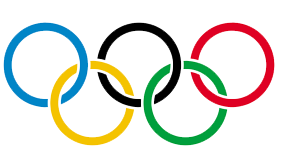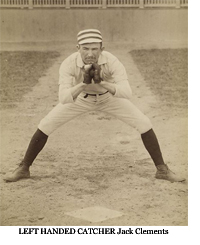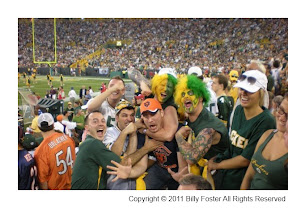Posts Tagged ‘sports’
How definitive are Olympic results? The answer is as varied as the scoring systems the events employ. For many Olympic competitions a team tallies wins and losses–a set of nominal variables. Such variables are qualitative and  considered to be of the lowest level of measurement. They ask a question (e.g. won?, lost?). The data answer the question with either true, represented by one, or false, represented by zero. Nominal categories must be mutually exclusive–one cannot both win and lose a particular game. The categories must also be fully exhaustive–a team must win or lose any game played. This method of determining a winner often satisfies spectators because outcomes are usually indisputable. Because a team’s record places equal value on all wins, it cannot be objectively compared across time periods. Opponents and skill levels change. Whether a current team is better than a previous team therefore becomes primarily a matter of opinion.
considered to be of the lowest level of measurement. They ask a question (e.g. won?, lost?). The data answer the question with either true, represented by one, or false, represented by zero. Nominal categories must be mutually exclusive–one cannot both win and lose a particular game. The categories must also be fully exhaustive–a team must win or lose any game played. This method of determining a winner often satisfies spectators because outcomes are usually indisputable. Because a team’s record places equal value on all wins, it cannot be objectively compared across time periods. Opponents and skill levels change. Whether a current team is better than a previous team therefore becomes primarily a matter of opinion.
At the other end of the spectrum is the ratio scale. Two relevant examples are time and distance. Ratio variables have two simple criteria. First, zero has to represent nothing. The zero-minute-mile is eternally elusive and zero-meter javelin tosses denote a complete lack of ability. Second, when a value is doubled it must mean double the value. Four minutes is twice the duration of two minutes and six yards is twice the length of three yards. These results can be compared across time periods. Whether examining the luge, shot put, or high jump, today’s Olympians can be directly compared to those from the past. Ratio level measurement is necessary for world records.
Ordinal measurements lie somewhere between nominal and ratio scales. They can be put in order, but the distances between them contain no additional information. Judges give ordinal scores. Higher means better, but we cannot say how much better. Two additional points from judges today are not equivalent to two additional points from judges yesterday, last year, or in 1980. Fans have to accept that ordinal scores are subjective and cannot be compared across time (or even across judges).
So, to start a discussion about an event’s greatest athlete, choose an event judged on a nominal or ordinal scale. Debating one with a world record holder won’t give you much to talk about.
Hockey has a strange system to determine who makes the playoffs. Each team receives two points for every match they win, zero points for every match they lose in regulation and one point for each game that they lose in overtime. This point total, not overall record, determines which teams make the playoffs.
For simplicity, let’s assume in any given match that each team has an equal chance of winning. The expected value for any regulation match is one point (the average of the winner’s two points and the loser’s zero) and the expected value for any overtime match is one and a half points (the winner gets two, the loser gets one).
In-conference matches involve one team trying to gain ground on the other. The expected value is not important. In this situation, teams only care about the expected gain (or loss) in points relative to their opponent. An overtime win results in a net gain of one point while a regulation win awards a net gain of two.
Teams from different conferences don’t compete with each other for playoff spots. So while teams playing within their conference care about expected gain, teams playing outside their conference care about expected value. If teams try to maximize these values, they will prefer for conference games to end in regulation and non-conference games to go into overtime. This affects third period strategies in close games. More importantly, it provides plenty of incentive for unspoken collusion between teams in different conferences.
Economists and accountants are often thrown into the same category. Accountants look at dollar values. What differentiates the economist is the addition of a concept called opportunity cost. One of my favorite examples of this involves a friend offering you $500 to help him move. If this is an uneventful day, you will probably help. If it is a holiday, you may decline. If it is Super Bowl Sunday and you have tickets to the game, you most likely will decline. The key is that you have to weigh all of your other options before making a decision.
 In his book, The Baseball Economist, J.C. Bradbury offers one of the most intelligent arguments I have ever heard for the absence of left-handed catchers. Since 1902, a left-handed catcher has been used in only sixty-three games. Bradbury sifts through some of the common arguments of why they rarely exist (difficulty throwing to third base, coordination with pitchers, throwing errors, etc.). Through cost-benefit analysis, he dismisses most of these as insignificant.
In his book, The Baseball Economist, J.C. Bradbury offers one of the most intelligent arguments I have ever heard for the absence of left-handed catchers. Since 1902, a left-handed catcher has been used in only sixty-three games. Bradbury sifts through some of the common arguments of why they rarely exist (difficulty throwing to third base, coordination with pitchers, throwing errors, etc.). Through cost-benefit analysis, he dismisses most of these as insignificant.
Where he concludes is extremely insightful. Being a catcher requires intelligence, a strong arm, and good vision. If you are left-handed and have these qualities, your coach is most likely not going to position you as a catcher. He will use you where your talents are most valuable–as a pitcher. No real bias against left-handed catchers exists. The cost is just too great to waste a southpaw at catcher when he could be stepping on the mound.
In the spring of 2011, Ray Lewis made the prediction that crime would increase if the NFL lockout prevents the football season from occurring. For some people, like the kids mentioned in his statement, football is a substitute for causing trouble. Ray Lewis (and subsequently LaVar Arrington) left out half the story. A group exists that causes crime because of football. Examples include football drunks and overly aggressive fans (e.g. the baseball incident in May 2011).  Without football, the first group will cause more crime while the second group will commit less crime. Due to the uncertainty of the relative sizes of these two groups, predicting the end result is not so easy. I would’ve suggested that crime would decrease, but I am no better of a predictor as we are all victims of the same type of bias.
Without football, the first group will cause more crime while the second group will commit less crime. Due to the uncertainty of the relative sizes of these two groups, predicting the end result is not so easy. I would’ve suggested that crime would decrease, but I am no better of a predictor as we are all victims of the same type of bias.
Mr. Lewis and Mr. Arrington believe the number of aspiring players is larger than unruly fans. I suggest the opposite. Why? Tversky and Kahneman’s availability heuristic suggests that we tend to think there are more of the types of people or things that can easily be brought to mind. The aforementioned NFL players believe that in the average community there are more aspiring athletes than fans. They grew up in such communities. I grew up in a place with relatively more fans, so I fall for the same type of selection bias by asserting the contrary. None of us has experienced the random sample necessary to make a reliable estimate. One of us is likely right, but based on poor methods of estimation.

